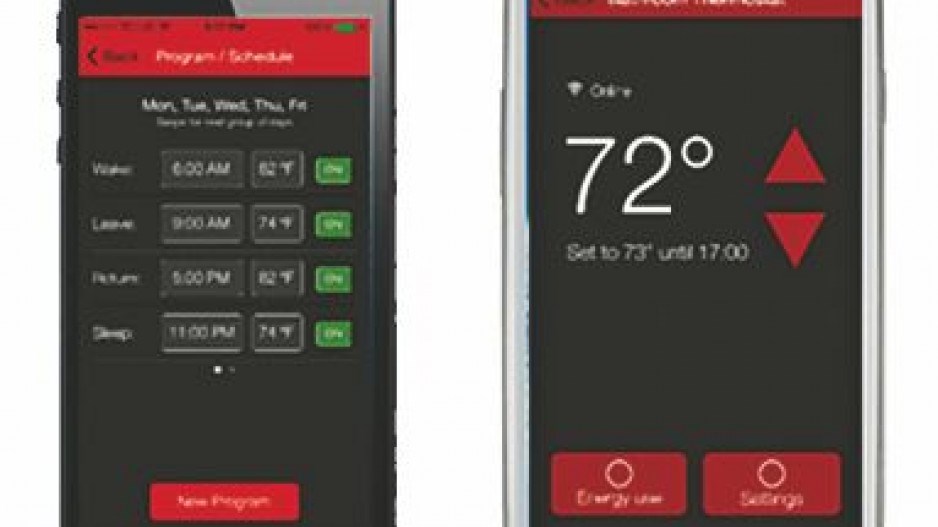From a padlock you unlock with your smartphone to cloud-based software that helps kosher food-producers certify their products are kosher, Vancouver has no lack of innovative new products and startups.
While some will bootstrap and grow organically, others need venture capital financing, and there is a decided disconnect between Vancouver's startup community and San Francisco's venture capitalists, most of whom rarely venture outside Silicon Valley.
David Blumberg of Blumberg Capital is an exception. The venture capitalist has a new $150 million fund and will be in Vancouver at the end of April looking for the next HootSuite – a company Blumberg Capital helped kick-start with early-stage financing.
Blumberg will be here April 30 to take pitches from Vancouver startups looking for early-stage financing. The pitch session will be hosted by another Vancouver company Blumberg has invested in: Trulioo.
"I'm there with some colleagues to hit the ground, survey the scene, meet entrepreneurs, talk to other investors and put our flag down again, as we've done before with HootSuite and Trulioo," Blumberg told Business in Vancouver.
Trulioo was the first startup to receive financing – $2 million worth – from Blumberg's newest fund, which is his third. Blumberg also was an early investor in HootSuite.
"We invested over $2 million and have already taken home about $46 million and have a whole other big chunk of the company in our possession," Blumberg said.
With a thriving high-tech community and favourable government policies, Vancouver is a good place to invest, Blumberg said. Canadian policies like the startup visa program, which encourages entrepreneurs to immigrate to Canada, are particularly good for the high-tech startup community, he said.
"You have a very forward-looking federal government," he said.
Nuheat Signature, M2M home automation
In January, at the Consumer Electronics Show (CES) in Las Vegas, Nuheat Industries Ltd. launched Signature, a Wi-Fi-controlled thermostat for its in-floor heating systems. It was one of many smart home devices showcased at the CES.
Nuheat will not be competing with Nest, which Google (Nasdaq:GOOG) is buying for $3.2 billion. Nest works for in-floor heating that uses hot water but not for systems that use electrical heating. Nuheat also has an edge in that it already has a built-in customer base for its new thermostat.
Now 25 years old, the Richmond company already does $30 million to $50 million in revenue annually. It designs in-floor electric radiant heating for hotels and high-end homes, including most of the Shangri-La Hotels and Resorts.
The Signature thermostat will allow homeowners to monitor energy use and remotely control the heating in their homes when they are away.
"A lot of people in Vancouver will have a home on, say, Saltspring, a home in Whistler, a home on the Island, and on their way they want a simple way to activate the heat before they get there," said Nuheat president Kevin McElroy. "You'll be able to control all of the floor heating devices in your house or houses with your smartphone or your tablet."
Trulioo, Internet/social media
When you sign up for, or sign into, a web-based service – meetup.com, for example – you are often given the option of signing in or signing up through your Facebook or Twitter account. Trulioo facilitates that with login authentication that allows website operators to support social media login while guarding against spamming.
Serial entrepreneur Stephen Ufford said he couldn't raise the seed funding he needed to get Trulioo off the ground in Canada, so he moved to Silicon Valley for a few months, pitching to numerous venture capitalists before he landed a $2 million investment from Blumberg.
TEO keyless padlock, M2M
TEO is a local startup that has developed a padlock that needs neither a key nor a combination. You lock and unlock it with your smartphone – something that is sure to be a hit with Vancouver cyclists. At Wavefront's M2M Summit in February, TEO won the Wavefront Innovation Showcase. The company has already raised more than $100,000 towards a $165,000 goal on Kickstarter.
Buyatab, e-commerce
Buyatab is a business-to-business e-commerce venture that allows people to buy electronic gift cards, personalize them and have them sent electronically to friends and family. Tim Hortons and Cineplex are among its clients.
The service integrates with a company's existing gift card processor and allows customized electronic versions of the cards to be made. Customers can buy an electronic gift card for Cineplex, for example, and personalize it, and it will be sent by email or text message and the recipient can redeem it with his or her smartphone.
"What we do for these merchants, we're helping them update their card designs all the time so they can address different holidays," said Derek Warburton, Buyatab's vice-president of sales and marketing. "That means they're not throwing out boxes and boxes of plastic cards they have manufactured."
Icicle, software
Burton Software has been around for years developing custom software. Two years ago, it launched its own product, Icicle, for the food industry. Icicle is a cloud-based platform that helps food producers with ingredient, health and safety management. There are certain biological and physical hazards in food processing, not to mention food allergens (peanuts, gluten, etc.) that must be accounted for and declared.
"The software walks them through a hazard analysis that lets them define how they're going to control those hazards, and then they can generate a formal government-compliant plan they can use to help weather the audits that they get," said company president Steve Burton.
Among Icicle's users is BC Kosher, which uses it to generate kosher certificates.




